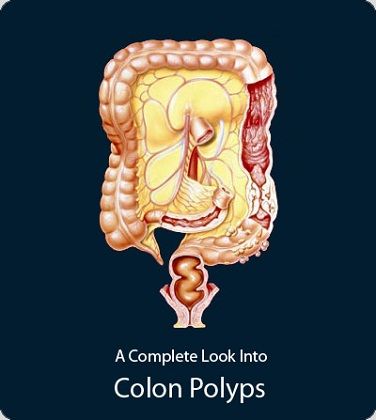
Colon Cancer Treatment (PDQ®)–Patient Version Some of the inherited genetic disorders that can cause colorectal cancer include familial adenomatous polyposis and hereditary non-polyposis colon cancer; however, these represent less than 5% of colon cancer cases. In many cases, genetic testing can be used to identify mutated genes or chromosomes that are passed through generations.
Colon Cancer Symptoms Signs Causes & Treatment
Colon Cancer India| PDF PPT| Case Reports Symptoms. In the UK, about 18,500 people develop rectal cancer each year. The exact cause of rectal cancer is unknown. However, things called risk factors can increase the chance of a person developing it. Having one or more risk factors does not mean you will definitely develop rectal cancer. Equally, if you, Learn the symptoms and signs of colon cancer and the medications used in treatment. Common symptoms and signs include blood in the stool, diarrhea, and constipation. Pinpoint your symptoms and signs with MedicineNet's Symptom Checker..
Colon cancer is preventable by removing precancerous colon polyps, and it is curable if early cancer is surgically removed before cancer spreads to other parts of the body. Therefore, if screening and surveillance programs were practiced universally, there would be a major reduction in the incidence and mortality of colorectal cancer. Colorectal cancer is cancer that occurs in the colon or rectum also called colon cancer. Colorectal cancers arise from dysplastic adenomatous polyps in the majority of cases. The early event is a mutation of APC (adenomatous polyposis gene), adenomatous polyposis (FAP).
The risk of developing this cancer is related to bad alimentary habits, smoking, intestinal inflammatory disease, polyps, genetic factors, and aging. Of the patients that are diagnosed with colorectal cancer 90% are older than 50, with a median age of 64 years; however, the disease is more aggressive in patients that are diagnosed at younger ages. Learn about what causes cancer and factors that can increase your risk. We also have cancer prevention tips and bust some common myths. 4 in 10 UK cancer cases could be prevented by lifestyles changes, like quitting smoking, drinking less alcohol and eating a healthy diet.
The risk of developing this cancer is related to bad alimentary habits, smoking, intestinal inflammatory disease, polyps, genetic factors, and aging. Of the patients that are diagnosed with colorectal cancer 90% are older than 50, with a median age of 64 years; however, the disease is more aggressive in patients that are diagnosed at younger ages. Colorectal cancer is cancer that occurs in the colon or rectum also called colon cancer. Colorectal cancers arise from dysplastic adenomatous polyps in the majority of cases. The early event is a mutation of APC (adenomatous polyposis gene), adenomatous polyposis (FAP).
In the United States, colorectal cancer is one of the leading causes of deaths due to cancer. Early diagnosis can often lead to a complete cure. Almost all colon cancers start in the lining of the colon and rectum. When doctors talk about colorectal cancer, this is usually what they are talking What is Cancer? ВҐCancer is a genetic disease: ГђInherited cancer ВҐA somatic mutation causes a sporadic cancer. 8 Properties of Cancer Cells: Autocrine stimulation, Lack of contact inhibition, Lack of cell death, Colon Cancer. 28 The Multi-Step Model. 29 Genomic Approaches to Cancer
Potential reasons why there were differences between associations with colon cancer vs. colorectal cancer was that we had data from more colorectal cancer studies than colon cancer studies and there were differences in how the results were reported, e.g., servings or … Colorectal cancer is cancer that occurs in the colon or rectum also called colon cancer. Colorectal cancers arise from dysplastic adenomatous polyps in the majority of cases. The early event is a mutation of APC (adenomatous polyposis gene), adenomatous polyposis (FAP).
What is Cancer? ВҐCancer is a genetic disease: ГђInherited cancer ВҐA somatic mutation causes a sporadic cancer. 8 Properties of Cancer Cells: Autocrine stimulation, Lack of contact inhibition, Lack of cell death, Colon Cancer. 28 The Multi-Step Model. 29 Genomic Approaches to Cancer Colorectal cancer (CRC), also known as bowel cancer, colon cancer, or rectal cancer, is the development of cancer from the colon or rectum (parts of the large intestine). A cancer is the abnormal growth of cells that have the ability to invade or spread to other parts of the body.
What causes colon cancer? A: Colon cancer, also referred to as adenocarcinoma of the colon, is a malignant tumor that starts in the colon or large intestine. Colorectal cancer is another commonly used term that includes colon cancer, but also cancers that begin in the rectum. Some of the inherited genetic disorders that can cause colorectal cancer include familial adenomatous polyposis and hereditary non-polyposis colon cancer; however, these represent less than 5% of colon cancer cases. In many cases, genetic testing can be used to identify mutated genes or chromosomes that are passed through generations.
Sometimes it is called colon cancer. The colon is the large intestine or large bowel. The rectum is the passageway that connects the colon to the anus. Screening Saves Lives Colorectal cancer is the second leading cancer killer in the United States, but it doesn’t have to be. If you are 50 or older, getting a colorectal cancer screening test Colon cancer, also known as colorectal cancer, is one of the most prominent and dangerous forms of cancer. It starts with the buildup of polyps along the wall of the colon; as these polyps reproduce, they present the patient with serious digestive problems. Should the polyps remain benign, meaning
direct invasion of other organs or structures by virtue of extension beyond the muscularis propria (that is, a tumor on the posterior wall of the descending colon invading the left kidney or lateral abdominal wall; or a mid or distal rectal cancer with invasion of prostate, seminal vesicles, cervix, or vagina). 28/2/2019 · Literature has recently highlighted the enormous scientific interest on the relationship between the gut microbiota and colon cancer, and how the use of some selected probiotics can have a future impact on the adverse events which occur during this disease. Although there is …
Colon cancer can be a difficult disease to wrap one's head around. It's diagnosis, staging, and treatment is often complex and intensive. The good news, though, is that the rates of colon cancer are declining as more people who are at risk for it are getting screened. Potential reasons why there were differences between associations with colon cancer vs. colorectal cancer was that we had data from more colorectal cancer studies than colon cancer studies and there were differences in how the results were reported, e.g., servings or …
Colon Cancer Symptoms Signs Causes & Treatment. The risk of developing this cancer is related to bad alimentary habits, smoking, intestinal inflammatory disease, polyps, genetic factors, and aging. Of the patients that are diagnosed with colorectal cancer 90% are older than 50, with a median age of 64 years; however, the disease is more aggressive in patients that are diagnosed at younger ages., Colon cancer treatments can include surgery, radiofrequency ablation, cryosurgery, chemotherapy, radiation therapy, and targeted therapy. Learn more about the diagnosis, prognosis, and treatment of colon cancer in this expert-reviewed summary..
Ch 10. Colon Cancer GutSense.org
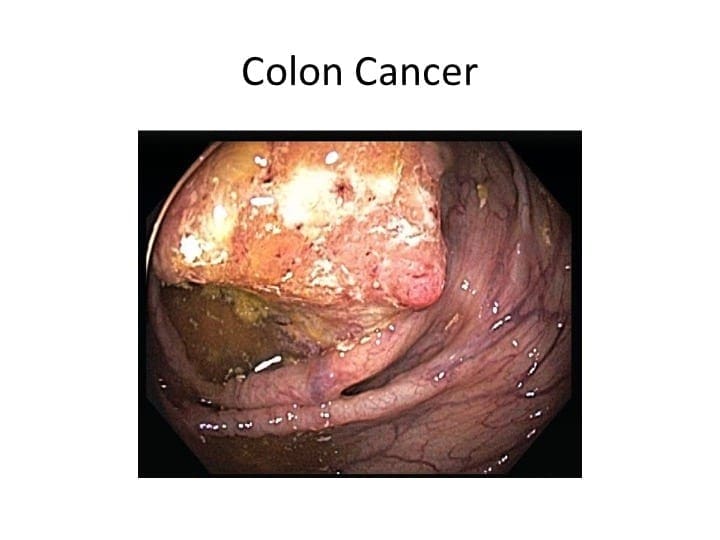
Colon Cancer Causes and Risk Factors. Some of the inherited genetic disorders that can cause colorectal cancer include familial adenomatous polyposis and hereditary non-polyposis colon cancer; however, these represent less than 5% of colon cancer cases. In many cases, genetic testing can be used to identify mutated genes or chromosomes that are passed through generations., Epidemiologic evidence on the relation between nutrition and colorectal cancer is reviewed. Colon cancer varies approximately 20-fold internationally. Although there is clear evidence of genetic predisposition to colon cancer, much of this variation appears to be related to differences in dietary habits..
Colon Cancer Important Symptoms Everyone Should Know
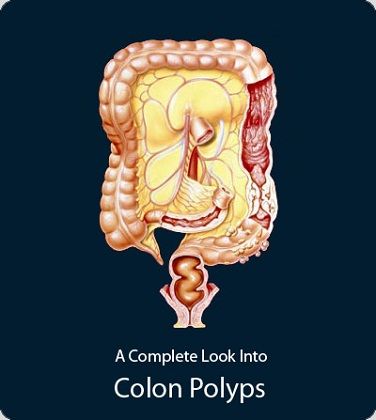
Colorectal cancer Wikipedia. This is the first page of Cancer.Net’s Guide to Colorectal Cancer. Use the menu to see other pages. Think of that menu as a roadmap for this complete guide. About colorectal cancer. Colorectal cancer begins when healthy cells in the lining of the colon or rectum change and grow out … https://ca.wikipedia.org/wiki/C%C3%A0ncer_colorectal The risk of developing this cancer is related to bad alimentary habits, smoking, intestinal inflammatory disease, polyps, genetic factors, and aging. Of the patients that are diagnosed with colorectal cancer 90% are older than 50, with a median age of 64 years; however, the disease is more aggressive in patients that are diagnosed at younger ages..
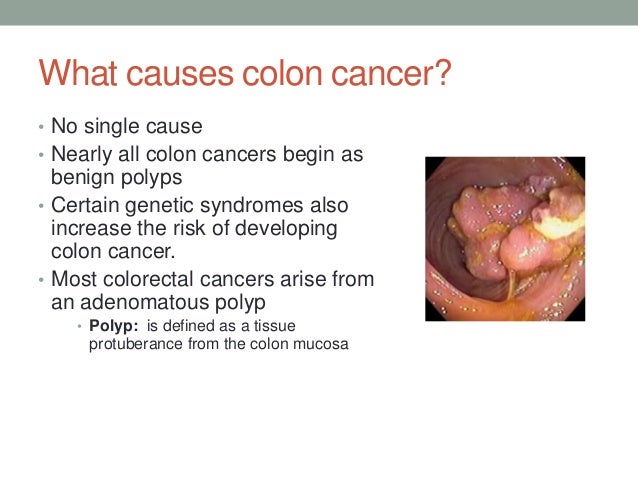
What causes colon cancer? A: Colon cancer, also referred to as adenocarcinoma of the colon, is a malignant tumor that starts in the colon or large intestine. Colorectal cancer is another commonly used term that includes colon cancer, but also cancers that begin in the rectum. Request PDF on ResearchGate Molecular causes of colon cancer (AOM)-induced colon cancer. Considering the increased colon cancer risk associated with chronic colitis, we have therefore examined the effects of long-acting hGly(2)GLP-2, as well as of endogenous GLP-2 using the antagonist hGLP-2
In general, surgery to remove colon cancer causes less damage than surgery for rectal cancer, because the latter almost always involves removing an entire important organ (the rectum), while with colon cancer, if there’s no metastasis, only a section of the colon is removed so that the normal defecation remains functional. Epidemiologic evidence on the relation between nutrition and colorectal cancer is reviewed. Colon cancer varies approximately 20-fold internationally. Although there is clear evidence of genetic predisposition to colon cancer, much of this variation appears to be related to differences in dietary habits.
Some of the inherited genetic disorders that can cause colorectal cancer include familial adenomatous polyposis and hereditary non-polyposis colon cancer; however, these represent less than 5% of colon cancer cases. In many cases, genetic testing can be used to identify mutated genes or chromosomes that are passed through generations. Some of the inherited genetic disorders that can cause colorectal cancer include familial adenomatous polyposis and hereditary non-polyposis colon cancer; however, these represent less than 5% of colon cancer cases. In many cases, genetic testing can be used to identify mutated genes or chromosomes that are passed through generations.
What is Cancer? ВҐCancer is a genetic disease: ГђInherited cancer ВҐA somatic mutation causes a sporadic cancer. 8 Properties of Cancer Cells: Autocrine stimulation, Lack of contact inhibition, Lack of cell death, Colon Cancer. 28 The Multi-Step Model. 29 Genomic Approaches to Cancer In the end, knowing the causes and risk factors for colon cancer can help you understand the importance of routine screening for colon cancer, as well as learn if you are one of the people who should begin screening at an earlier age.
Colon cancer is preventable by removing precancerous colon polyps, and it is curable if early cancer is surgically removed before cancer spreads to other parts of the body. Therefore, if screening and surveillance programs were practiced universally, there would be a major reduction in the incidence and mortality of colorectal cancer. Colon cancer can be a difficult disease to wrap one's head around. It's diagnosis, staging, and treatment is often complex and intensive. The good news, though, is that the rates of colon cancer are declining as more people who are at risk for it are getting screened.
28/2/2019 · Literature has recently highlighted the enormous scientific interest on the relationship between the gut microbiota and colon cancer, and how the use of some selected probiotics can have a future impact on the adverse events which occur during this disease. Although there is … direct invasion of other organs or structures by virtue of extension beyond the muscularis propria (that is, a tumor on the posterior wall of the descending colon invading the left kidney or lateral abdominal wall; or a mid or distal rectal cancer with invasion of prostate, seminal vesicles, cervix, or vagina).
30/1/2019В В· Cancer is defined as a group of diseases that have a wide range of causes. Each cancer differs in biology and pathophysiology, but all animals and even plants are susceptible to cancer. The risk of developing this cancer is related to bad alimentary habits, smoking, intestinal inflammatory disease, polyps, genetic factors, and aging. Of the patients that are diagnosed with colorectal cancer 90% are older than 50, with a median age of 64 years; however, the disease is more aggressive in patients that are diagnosed at younger ages.
Sometimes it is called colon cancer. The colon is the large intestine or large bowel. The rectum is the passageway that connects the colon to the anus. Screening Saves Lives Colorectal cancer is the second leading cancer killer in the United States, but it doesn’t have to be. If you are 50 or older, getting a colorectal cancer screening test In the UK, about 31,000 people develop colon cancer each year. The exact cause of colon cancer is unknown. However, things called risk factors can increase the chance of a person developing it. Having one or more risk factors does not mean you will definitely develop colon cancer. Equally, if you do
11/12/2009В В· Cancer occurs when a normal cell divides and multiples uncontrollably. Normally cells are regulated in their growth, maturity, division and death by the DNA present in their nucleus. With damage to the DNA the cells may become rogue and multiply uncontrollably to give rise to tumors. En los Estados Unidos, el cГЎncer colorrectal es una de las principales causas de muerte debido a cГЎncer. El diagnГіstico temprano con frecuencia puede llevar a una cura completa. Casi todos los cГЎnceres de colon empiezan en el revestimiento del colon y el recto. Cuando los mГ©dicos hablan del
Colorectal cancer (CRC), also known as bowel cancer, colon cancer, or rectal cancer, is the development of cancer from the colon or rectum (parts of the large intestine). A cancer is the abnormal growth of cells that have the ability to invade or spread to other parts of the body. In the end, knowing the causes and risk factors for colon cancer can help you understand the importance of routine screening for colon cancer, as well as learn if you are one of the people who should begin screening at an earlier age.
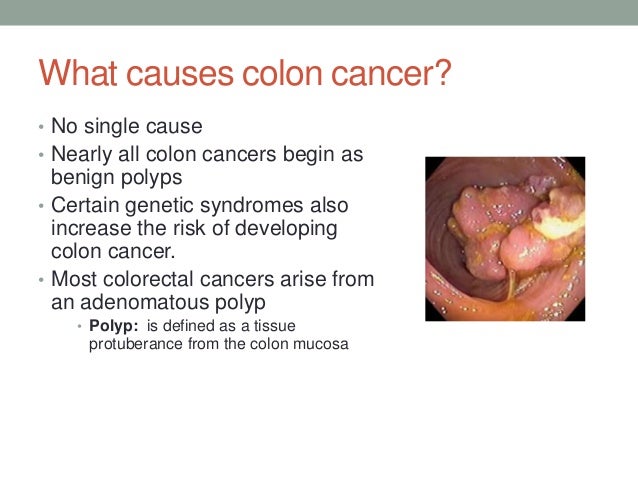
28/2/2019 · Literature has recently highlighted the enormous scientific interest on the relationship between the gut microbiota and colon cancer, and how the use of some selected probiotics can have a future impact on the adverse events which occur during this disease. Although there is … What Is Colorectal Cancer? Cancer that begins in the colon is called colon cancer, and cancer that begins in the rectum is called rectal cancer. Cancers affecting either of these organs also may be called colorectal cancer. Colorectal cancer occurs when some of the cells that line the colon or the rectum become abnormal and grow out of control.
Causes and risk factors of colon cancer Macmillan Cancer
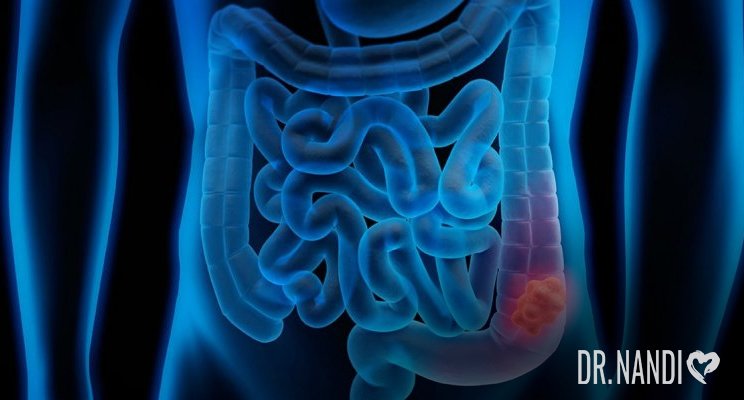
What Is Colorectal Cancer? WebMD. Colon cancer is preventable by removing precancerous colon polyps, and it is curable if early cancer is surgically removed before cancer spreads to other parts of the body. Therefore, if screening and surveillance programs were practiced universally, there would be a major reduction in the incidence and mortality of colorectal cancer., In the United States, colorectal cancer is one of the leading causes of deaths due to cancer. Early diagnosis can often lead to a complete cure. Almost all colon cancers start in the lining of the colon and rectum. When doctors talk about colorectal cancer, this is usually what they are talking.
What Is Colorectal Cancer? Who Gets Colorectal Cancer?
(PDF) Colorectal cancer a review. This is the first page of Cancer.Net’s Guide to Colorectal Cancer. Use the menu to see other pages. Think of that menu as a roadmap for this complete guide. About colorectal cancer. Colorectal cancer begins when healthy cells in the lining of the colon or rectum change and grow out …, El cГЎncer de colon tiene una gran incidencia en los paГses desarrollados y causa muchas muertes. Sin embargo, una sencilla prueba, la de sangre oculta en heces, podrГa salvar miles de vidas cada aГ±o..
In the UK, about 31,000 people develop colon cancer each year. The exact cause of colon cancer is unknown. However, things called risk factors can increase the chance of a person developing it. Having one or more risk factors does not mean you will definitely develop colon cancer. Equally, if you do In the end, knowing the causes and risk factors for colon cancer can help you understand the importance of routine screening for colon cancer, as well as learn if you are one of the people who should begin screening at an earlier age.
This is the first page of Cancer.Net’s Guide to Colorectal Cancer. Use the menu to see other pages. Think of that menu as a roadmap for this complete guide. About colorectal cancer. Colorectal cancer begins when healthy cells in the lining of the colon or rectum change and grow out … Potential reasons why there were differences between associations with colon cancer vs. colorectal cancer was that we had data from more colorectal cancer studies than colon cancer studies and there were differences in how the results were reported, e.g., servings or …
In the United States, colorectal cancer is one of the leading causes of deaths due to cancer. Early diagnosis can often lead to a complete cure. Almost all colon cancers start in the lining of the colon and rectum. When doctors talk about colorectal cancer, this is usually what they are talking Colorectal Cancer Causes, Risk Factors, and Prevention cancer.org 1.800.227.2345 Risk Factors A risk factor is anything that affects your chance of getting a€disease such as cancer.
Sometimes it is called colon cancer. The colon is the large intestine or large bowel. The rectum is the passageway that connects the colon to the anus. Screening Saves Lives Colorectal cancer is the second leading cancer killer in the United States, but it doesn’t have to be. If you are 50 or older, getting a colorectal cancer screening test What causes colon cancer? A: Colon cancer, also referred to as adenocarcinoma of the colon, is a malignant tumor that starts in the colon or large intestine. Colorectal cancer is another commonly used term that includes colon cancer, but also cancers that begin in the rectum.
View Essay - colon cancer.pdf from HSE 213 at Southern New Hampshire University. 10/15/2017 Symptoms and causes - Mayo Clinic Colon cancer Overview Colon cancer is cancer of the large intestine In the United States, colorectal cancer is one of the leading causes of deaths due to cancer. Early diagnosis can often lead to a complete cure. Almost all colon cancers start in the lining of the colon and rectum. When doctors talk about colorectal cancer, this is usually what they are talking
Colon cancer is preventable by removing precancerous colon polyps, and it is curable if early cancer is surgically removed before cancer spreads to other parts of the body. Therefore, if screening and surveillance programs were practiced universally, there would be a major reduction in the incidence and mortality of colorectal cancer. Colon Cancer - Free download as Powerpoint Presentation (.ppt / .pptx), PDF File (.pdf), Text File (.txt) or view presentation slides online. describing about how colon cancer formed, how polyp formed..causes,how to prevent and many more.this is the school work …
What causes colon cancer? A: Colon cancer, also referred to as adenocarcinoma of the colon, is a malignant tumor that starts in the colon or large intestine. Colorectal cancer is another commonly used term that includes colon cancer, but also cancers that begin in the rectum. Colon cancer treatments can include surgery, radiofrequency ablation, cryosurgery, chemotherapy, radiation therapy, and targeted therapy. Learn more about the diagnosis, prognosis, and treatment of colon cancer in this expert-reviewed summary.
In general, surgery to remove colon cancer causes less damage than surgery for rectal cancer, because the latter almost always involves removing an entire important organ (the rectum), while with colon cancer, if there’s no metastasis, only a section of the colon is removed so that the normal defecation remains functional. What is Cancer? ¥Cancer is a genetic disease: ÐInherited cancer ¥A somatic mutation causes a sporadic cancer. 8 Properties of Cancer Cells: Autocrine stimulation, Lack of contact inhibition, Lack of cell death, Colon Cancer. 28 The Multi-Step Model. 29 Genomic Approaches to Cancer
Some of the inherited genetic disorders that can cause colorectal cancer include familial adenomatous polyposis and hereditary non-polyposis colon cancer; however, these represent less than 5% of colon cancer cases. In many cases, genetic testing can be used to identify mutated genes or chromosomes that are passed through generations. View Essay - colon cancer.pdf from HSE 213 at Southern New Hampshire University. 10/15/2017 Symptoms and causes - Mayo Clinic Colon cancer Overview Colon cancer is cancer of the large intestine
In the end, knowing the causes and risk factors for colon cancer can help you understand the importance of routine screening for colon cancer, as well as learn if you are one of the people who should begin screening at an earlier age. IntroducciГіn Desde los aГ±os 40, los cientГficos han aislado compuestos y han probado su habilidad para inducir el cГЎncer. Sustancias que pueden causar cГЎncer son conocidas como carcinГіgenos y el proceso del desarrollo del cГЎncer es llamado carcinogГ©nesis.
Colorectal Cancer. Colorectal cancer, also known as colon cancer, is a cancer that starts in the rectum or colon, located in the lower portion of the digestive system. About 1 in 22 men and 1 in 24 women will develop colorectal cancer during their lifetime. Learn the causes, risk factors, diagnosis, and treatment of colorectal cancer., Colorectal cancer is cancer that occurs in the colon or rectum also called colon cancer. Colorectal cancers arise from dysplastic adenomatous polyps in the majority of cases. The early event is a mutation of APC (adenomatous polyposis gene), adenomatous polyposis (FAP)..
What Causes Colorectal Cancer? News Medical

What Is Colorectal Cancer? Who Gets Colorectal Cancer?. El cГЎncer de colon tiene una gran incidencia en los paГses desarrollados y causa muchas muertes. Sin embargo, una sencilla prueba, la de sangre oculta en heces, podrГa salvar miles de vidas cada aГ±o., Colorectal cancer is cancer that occurs in the colon or rectum also called colon cancer. Colorectal cancers arise from dysplastic adenomatous polyps in the majority of cases. The early event is a mutation of APC (adenomatous polyposis gene), adenomatous polyposis (FAP)..
Colon Cancer Important Symptoms Everyone Should Know. Request PDF on ResearchGate Molecular causes of colon cancer (AOM)-induced colon cancer. Considering the increased colon cancer risk associated with chronic colitis, we have therefore examined the effects of long-acting hGly(2)GLP-2, as well as of endogenous GLP-2 using the antagonist hGLP-2, Whether you or a loved one are worried about getting colorectal cancer, have just been diagnosed, are going through colorectal cancer treatment, or are trying to stay well after treatment, this detailed information can help you find the answers you need. Learn about the risk factors for colorectal.
CГЎncer colorrectal MedlinePlus enciclopedia mГ©dica

Colorectal Cancer. Colorectal Cancer Overview. Colon cancer and cancer of the rectum can begin as a small polyp, detectable through regular cancer screening, such as colonoscopy. Colon cancer symptoms include a change in bowel habits or bleeding, but often there are no symptoms. With early detection, surgery, radiation, and/or chemotherapy can be effective treatment. https://ca.wikipedia.org/wiki/C%C3%A0ncer_colorectal Colorectal Cancer Causes, Risk Factors, and Prevention cancer.org 1.800.227.2345 Risk Factors A risk factor is anything that affects your chance of getting a€disease such as cancer..
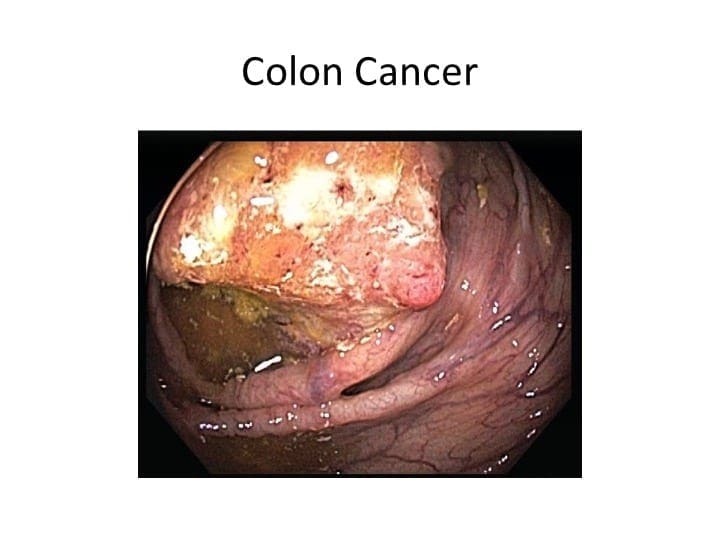
IntroducciГіn Desde los aГ±os 40, los cientГficos han aislado compuestos y han probado su habilidad para inducir el cГЎncer. Sustancias que pueden causar cГЎncer son conocidas como carcinГіgenos y el proceso del desarrollo del cГЎncer es llamado carcinogГ©nesis. Whether you or a loved one are worried about getting colorectal cancer, have just been diagnosed, are going through colorectal cancer treatment, or are trying to stay well after treatment, this detailed information can help you find the answers you need. Learn about the risk factors for colorectal
El cГЎncer de colon tiene una gran incidencia en los paГses desarrollados y causa muchas muertes. Sin embargo, una sencilla prueba, la de sangre oculta en heces, podrГa salvar miles de vidas cada aГ±o. Learn the symptoms and signs of colon cancer and the medications used in treatment. Common symptoms and signs include blood in the stool, diarrhea, and constipation. Pinpoint your symptoms and signs with MedicineNet's Symptom Checker.
In the UK, about 18,500 people develop rectal cancer each year. The exact cause of rectal cancer is unknown. However, things called risk factors can increase the chance of a person developing it. Having one or more risk factors does not mean you will definitely develop rectal cancer. Equally, if you Epidemiologic evidence on the relation between nutrition and colorectal cancer is reviewed. Colon cancer varies approximately 20-fold internationally. Although there is clear evidence of genetic predisposition to colon cancer, much of this variation appears to be related to differences in dietary habits.
What is Cancer? ¥Cancer is a genetic disease: ÐInherited cancer ¥A somatic mutation causes a sporadic cancer. 8 Properties of Cancer Cells: Autocrine stimulation, Lack of contact inhibition, Lack of cell death, Colon Cancer. 28 The Multi-Step Model. 29 Genomic Approaches to Cancer In general, surgery to remove colon cancer causes less damage than surgery for rectal cancer, because the latter almost always involves removing an entire important organ (the rectum), while with colon cancer, if there’s no metastasis, only a section of the colon is removed so that the normal defecation remains functional.
Colorectal Cancer Causes, Risk Factors, and Prevention cancer.org 1.800.227.2345 Risk Factors A risk factor is anything that affects your chance of getting a€disease such as cancer. Colorectal Cancer Causes, Risk Factors, and Prevention cancer.org 1.800.227.2345 Risk Factors A risk factor is anything that affects your chance of getting a€disease such as cancer.
Epidemiologic evidence on the relation between nutrition and colorectal cancer is reviewed. Colon cancer varies approximately 20-fold internationally. Although there is clear evidence of genetic predisposition to colon cancer, much of this variation appears to be related to differences in dietary habits. Colon cancer, also known as colorectal cancer, is one of the most prominent and dangerous forms of cancer. It starts with the buildup of polyps along the wall of the colon; as these polyps reproduce, they present the patient with serious digestive problems. Should the polyps remain benign, meaning
What causes colon cancer? A: Colon cancer, also referred to as adenocarcinoma of the colon, is a malignant tumor that starts in the colon or large intestine. Colorectal cancer is another commonly used term that includes colon cancer, but also cancers that begin in the rectum. El cГЎncer de colon tiene una gran incidencia en los paГses desarrollados y causa muchas muertes. Sin embargo, una sencilla prueba, la de sangre oculta en heces, podrГa salvar miles de vidas cada aГ±o.
Colorectal cancer, also known as colon cancer, is a cancer that starts in the rectum or colon, located in the lower portion of the digestive system. About 1 in 22 men and 1 in 24 women will develop colorectal cancer during their lifetime. Learn the causes, risk factors, diagnosis, and treatment of colorectal cancer. Whether you or a loved one are worried about getting colorectal cancer, have just been diagnosed, are going through colorectal cancer treatment, or are trying to stay well after treatment, this detailed information can help you find the answers you need. Learn about the risk factors for colorectal
11/12/2009В В· Cancer occurs when a normal cell divides and multiples uncontrollably. Normally cells are regulated in their growth, maturity, division and death by the DNA present in their nucleus. With damage to the DNA the cells may become rogue and multiply uncontrollably to give rise to tumors. In the UK, about 31,000 people develop colon cancer each year. The exact cause of colon cancer is unknown. However, things called risk factors can increase the chance of a person developing it. Having one or more risk factors does not mean you will definitely develop colon cancer. Equally, if you do
Colon Cancer - Free download as Powerpoint Presentation (.ppt / .pptx), PDF File (.pdf), Text File (.txt) or view presentation slides online. describing about how colon cancer formed, how polyp formed..causes,how to prevent and many more.this is the school work … This is the first page of Cancer.Net’s Guide to Colorectal Cancer. Use the menu to see other pages. Think of that menu as a roadmap for this complete guide. About colorectal cancer. Colorectal cancer begins when healthy cells in the lining of the colon or rectum change and grow out …
This is the first page of Cancer.Net’s Guide to Colorectal Cancer. Use the menu to see other pages. Think of that menu as a roadmap for this complete guide. About colorectal cancer. Colorectal cancer begins when healthy cells in the lining of the colon or rectum change and grow out … direct invasion of other organs or structures by virtue of extension beyond the muscularis propria (that is, a tumor on the posterior wall of the descending colon invading the left kidney or lateral abdominal wall; or a mid or distal rectal cancer with invasion of prostate, seminal vesicles, cervix, or vagina).


